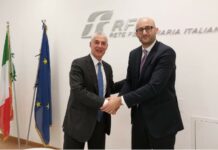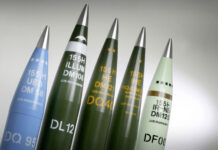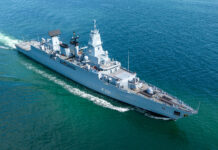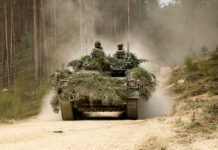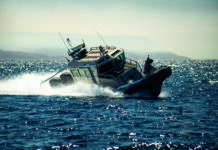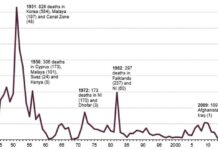The US troop withdrawal and the Taliban comeback marked a new chapter for Afghanistan and also for all those international actors that have played their part in the long Afghan war. Although its role in the country’s history has never been as powerful as that played by the US, the EU still holds a moral responsibility to now fulfil its promises to the Afghan people, precisely when it is most needed.
Key Questions
Currently pre-occupied with the Russian-Ukrainian war, challenging not only its security, peace, and stability, but its own existence, the EU is forced to prioritise its long list of commitments. Meanwhile, the promises made to the Afghan nation seem to be kept on hold, in the shadow of a triple dilemma:
- Should the EU engage in reconstructing Afghanistan?
- If the EU becomes part of this new Afghan chapter, what is the correct strategy to follow?
- Is the EU prepared to deal with the change of local players in Afghan politics?
The EU needs to take the time to reflect on its overall involvement in Afghanistan before the 2021 Western withdrawal, to understand the flaws in its own strategy and to address them. Unfortunately, the past two decades of EU policy interventions in Afghanistan have demonstrated a dangerous lack of contextual understanding of the developing situation in the country, a superficial one-size-fits-all democracy support strategy, and a counteractive security approach. Without an official, honest, detailed, well-resourced, and publicly available critical assessment of the EU’s actions and involvement in Afghanistan since the 1990s, a new commitment towards the Afghan nation will be doomed to fail.

Afghanistan in 2022
Ten months after the Taliban takeover of power, chaos in Afghanistan deepens, and all in a painful silence, overshadowed by the war between Russia and Ukraine and its global consequences. With a population of almost 40 million at home and more than 5 million abroad, the Afghan nation seems to have been left alone to face its fate – the hardest challenge so far in 40 tumultuous years.
Current reports from the ground point towards a cessation of armed hostilities in many parts of the country and a consequent reduction in conflict-related casualties since the Taliban takeover. Other sources highlight the ongoing extrajudicial and revenge killings of ex-members of the former security forces and officials and systematic searches for citizens who collaborated with foreign governments before 2021. Afghan society has taken back the path of “absolute control” and is currently being ruled by fear, witnessing the suspension of girls’ secondary education, together with severe forms of gender segregation, limits on freedom of movement, association, and expression, lack of employment opportunities, and a deepening economic crisis resulting in poverty, hunger, and humiliation for the Afghan people. The Taliban initially tried hard to masquerade as defenders of human rights, but their return to power has immediately highlighted the gap between their words and deeds.
According to the U.N., since the Taliban’s takeover, the economic catastrophe is only deepening and moving towards a point of irreversibility despite more than US$2Bn spent in aid. The Islamic State Khorasan Province (ISKP) has increased both recruitment among the Afghan population and attacks in the country. The reduction in the international counterterrorism and intelligence footprint in Afghanistan (specifically, counterterrorism operations against ISKP) has provided the group the perfect opportunity to develop its resources on the ground and strike. Moreover, the Pakistani Taliban (Tehrik-i-Taliban Pakistan / TTP) have also became more active in the region, conducting several attacks within Pakistan. The humanitarian situation inside Afghanistan deteriorated in 2021 with significant consequences for the most vulnerable among the population. Some 3.4 million people are currently displaced by conflict. UNHCR is responding to this emergency while in neighbouring Iran and Pakistan, there are 2 million registered Afghan refugees.
The EU’s Involvement in Afghanistan before September 2021
The European Community and later the EU have been active in Afghanistan since the 1980s. The EU is the second largest donor to Afghanistan, and its efforts towards achieving Afghan security, stability, and democratisation started in 2001, marked by the first international conference on Afghanistan, held in Bonn. Back then, the European Commission committed €4.93M from the Rapid Reaction Mechanism (RRM) to help legitimise the political transition. The primary objective of this funding was to support the political changes under way and extend the control of the new Afghan authorities over the territory of the state.
This first initiative was followed by several other aid programmes between 2002 and 2006, aimed at strengthening the credibility of the Provisional Administration of Afghanistan among the public and to prepare democratic elections, reconstruction, and democratisation. In the period of 2002-2006, the EU contributed €3.7Bn (EC budget and EU Member States) in aid to Afghanistan (EUPOL Afghanistan, 2007), which accounted for almost 30 per cent of global financial aid for the post-war reconstruction of Afghanistan and its development.
While more funding continued to be provided by the EU, situation evolution assessment documents from 2007 emphasise that the financial commitments and international effort has not been efficient enough to provide “real progress towards creating a democratic, stable and prosperous Afghanistan is seriously threatened by the significant deterioration in security and by the exponential growth in opium poppy production” (European Commission, National Indicative Programme of European Community Support 2005-2006: Afghanistan). The report also emphasised several other significant issues from the ground such as:
- insurgency
- persisting insecurity
- drug trafficking networks
- weak law enforcement agencies that led to deteriorating conditions and in turn resulted in the suspension of projects in high-risk areas
In 2017, the EU and Afghanistan signed a cooperation agreement for partnership and development, that specified the main pillars of the support framework to be applied during the so-called decade of transformation (2015–2024), such as:
- building peace and strengthening international security
- developing the platform for regular political dialogue ensuring the protection and promotion of human rights and the creation of civil society
- economic cooperation and development through increasing EU investments in Afghanistan
- cooperation in the field of justice and home affairs, aimed at strengthening the judiciary and police forces and at combating organised crime and irregular migration
While focusing on the vital role of establishing economic development, democratisation and internal stability in Afghanistan, the EU acknowledged that addressing peace and security constituted vital interlinked challenges needed to form the foundation of any new strategy.
By 2021, the EU and its Member States had contributed approximately €11Bn (US$13Bn) to multilateral efforts to rebuild Afghanistan, an amount that even exceeded the US$10Bn contribution that the United States had made to these international reconstruction efforts. The EU and its Member States collectively became the largest donor to the international organisations helping to rebuild Afghanistan, contributing around 34 per cent of the funds for these multilateral reconstruction efforts between 2002 and 2021.
On paper, the EU developed a perfect strategy to support Afghan reconstruction and democratisation efforts. In fact, the EU lacked a contextual understanding of the reality on the ground, promoting a model of democracy that centralised the reconstruction project and legitimised top-down, elite-centric processes. The largest funds were processed by centralised state building, while the local democratic empowerment was allocated less. If the EU understood the Afghan system of power and politics during that time and took into consideration all the significant characteristics of local Afghan society, it would have developed its strategy accordingly and might have had better chances to succeed.
Unfortunately, the EU proved unaware of the true use of the provided funding. For instance, a month before the Taliban takeover, the EU maintained donor pledges for 2021–2024 to the Afghanistan Reconstruction Trust Fund and had already disbursed about US$188M of those pledges for 2021, ignoring the fact that over half the districts in Afghanistan were already under Taliban control.
Moreover, the power dynamics on the ground were never truly known by the EU and its international partners who supported the formally democratic system, while the Taliban built informal parallel state structures and gained support from local populations facing an elected but corrupt authoritarian government.

Photo: US Air Force / Master Sgt. Donald R. Allen
US Troop Withdrawal, Taliban Takeover, and EU Concerns
The events in Afghanistan in August and September 2021 caught most of the international actors on the ground unprepared. The Taliban takeover closed many of the opportunities available for foreign officials and local collaborators to leave the country. For the EU, the rapid developments reflected their dependence on American capabilities, vital for ensuring the evacuation of Europeans and their Afghan partners from Kabul.
Beyond the chaotic aftermath of the Taliban takeover, the new chapter of Afghanistan’s history started in 2021 and developed as a challenging task not just for the country, but also for the foreign actors involved to date. Therefore, Afghanistan is currently a hard and demanding examination that has the potential to reflect, paradoxically, the EU’s potential for strategic autonomy, measured through information, decision, and action.
Information from the ground about plans to seize Kabul and the rapid advance of Taliban forces was deficient. At the same time, the US decision to leave was announced in the spring and prompted no EU response at the time. As a result, the EU potential to act in such a vulnerable, uncertain, complex, and ambiguous context, was limited. However, this does not have to be a fatal setback for European policy on Afghanistan. On the contrary, it should provide important lessons to develop better objectives and strategy, based on relevant, verified, coherent information that can provide a contextual understanding of the region/local/ground situation. Nevertheless, just like the US, the EU joins the geopolitical competition game surrounding Afghanistan whose actors include China, Russia, and Pakistan, among others. It must take the decision to be an influential force in the region: coordination between Member States – regarding information gathering, decision-making and contributing to the development-security nexus – will be essential.
The EU’s Involvement in Afghanistan after September 2021
To begin with, the EU’s decision in January 2022 to provide “humanitarian plus” aid through UN agencies to meet the Afghans’ basic needs was a first step towards developing practical solutions to the crisis. However, the road ahead is paved with obstacles and unknown traps that demand a more coherent strategy for ending the humanitarian crisis and ensuring Afghanistan’s sustainable development is therefore imperative.
In the current context, bearing in mind the most recent global challenges brought about by 2022, the EU is facing a triple dilemma in relation to its developing strategy regarding Afghanistan:
- responsibility and timing (should the EU engage in reconstructing Afghanistan?)
- manner (if EU becomes part of this new Afghan chapter, what is the right strategy to follow?)
- recognition of local-actors / players (is the EU prepared to deal with the change of local players in Afghan politics?)
While the EU is already facing internal and external pressure, mainly due to the consequences of the war in Ukraine, a vocal involvement in the Afghan crisis might not be seen as a strategic priority. Although the commitment to help and support the Afghan people was clearly emphasised through declarations and action plans, a clear strategy is yet to be drawn up. Secondly, the lack of feasible sources able to provide valuable information from the ground pushes the EU back to the position of taking the wrong course of action, based on inaccurate assumptions of the Afghan crisis. Therefore, acknowledging that the best strategy is the one developed based on a contextual understanding of the reality on the ground, the EU currently needs to first develop its capacity to obtain the necessary information. Thirdly, avoiding any formal recognition of the Taliban while working to tackle Afghanistan’s growing humanitarian crisis is a hard task for the EU and for other governments. Although some members of the interim Taliban government may have been posing as more moderate and open to complying with donors’ concerns, there is an enormous gap between the Taliban’s words and deeds, seeking recognition and financial aid for its government, while using the humanitarian crisis to achieve its goals. Nevertheless, as emphasised by European Commission President von der Leyen, while Europe does not recognise the Taliban and disapproves of its hardline policies and especially its treatment of women and girls, it cannot look the other way as the country faces economic and social collapse.
Conclusion
Although currently at a crossroads, and challenged from all directions, the European Union is still expected to play a key role in leading the global effort to secure vital help for Afghanistan and fulfil its promises to the Afghan people. Beyond humanitarian assistance, the EU and all other foreign actors committed to engaging in this new chapter need to develop a contextualised, ground-based, interlinked approach to normalise the economy and stabilise the political scene.
Andreea Stoian Karadeli




